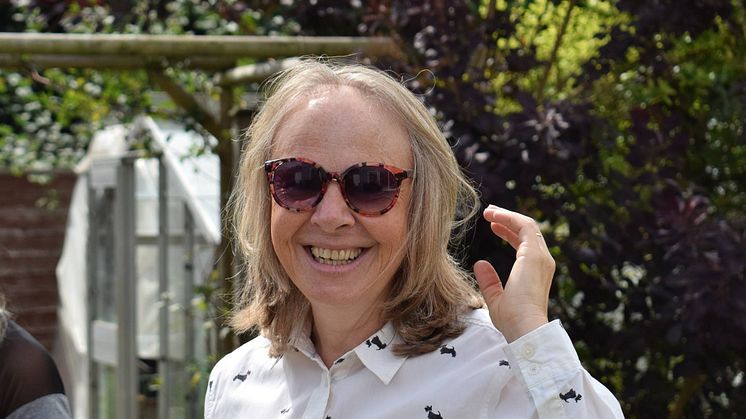
Press release -
Ringwood stroke survivor adds her voice to Lost for Words campaign
Ringwood stroke survivor Kathy Melling, 53, is one of the thousands of people living with communication difficulties after a stroke.
Kathy, a mother of two, had a severe stroke last November. Initially Kathy couldn’t speak as a result of her stroke, but after four days she recovered her speech, albeit in a completely different accent.
Kathy, who formerly worked as an infant school teacher, developed Foreign Accent Syndrome following her stroke, and now speaks with a French accent. She said: “No one was more shocked than I was when I started speaking with an accent. To begin with, I virtually had no voice after my stroke. After four days my voice came back, but it sounded Scandinavian, and I had to force out the sounds which actually sounded quiet.

“I always remind myself that I’m so thankful to have a voice. I’m very grateful that I can still communicate and express myself. Although my accent has changed, I’m still able to communicate with others about stroke, which is really important to do. My stroke changed my life in an instant, and that’s why I’m really passionate to raise awareness of the condition by sharing my story with others.
“I’m continuing to work hard with my speech, and hope to one day get my old voice back. I’ve joined the Stroke Association’s Christchurch Peer Support Group, which has helped my confidence enormously. My husband has also created a helpful card which explains what has happened to me for times when I find myself feeling anxious or upset.”

The Stroke Association’s Lost for Words campaign aims to raise awareness of the challenges stroke survivors with communication difficulties can face, and help and support available.
Claire Whitehouse, Community Stroke Support Assistant at the Stroke Association, said: “After a stroke, around one in three people like Kathy have difficulty communicating, which can be both terrifying and isolating. But with the right help and support, many stroke survivors are able to find new ways to communicate, and can rebuild their lives.
“Since Kathy has been attending our Christchurch Peer Support Group, she’s gone from strength to strength. I’m so proud of her recovery.”
More than 350,000 people in the UK have aphasia, a communication disability which can be caused by stroke. The Stroke Association is urging people to show their support for stroke survivors who are lost for words and make a donation. For more information, visit www.stroke.org.uk/lostforwords.
Topics











